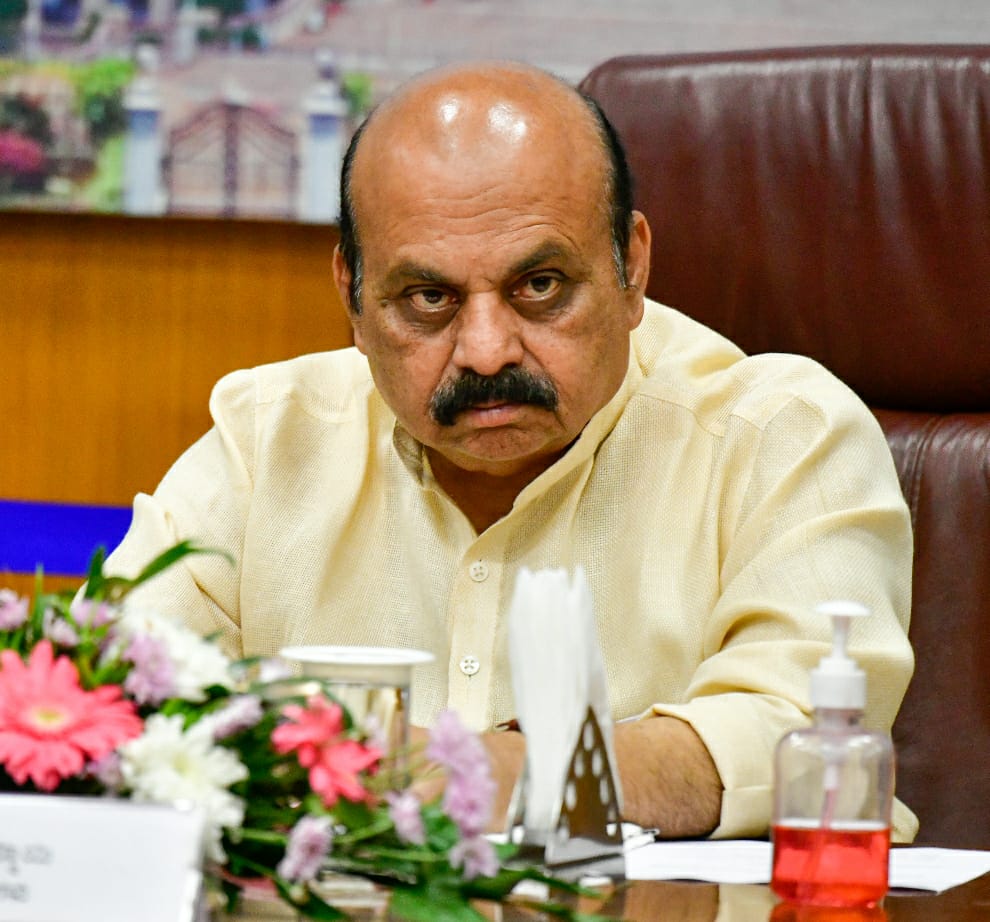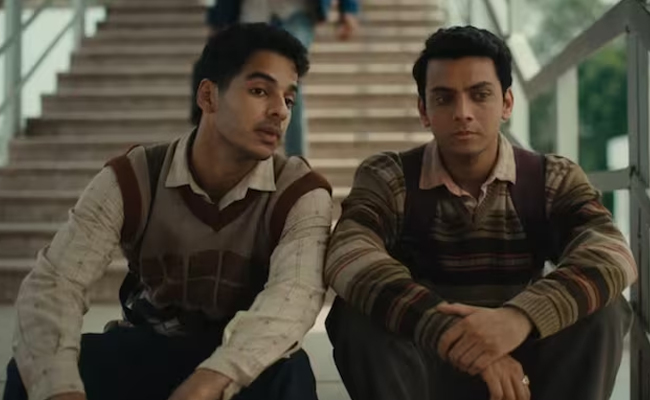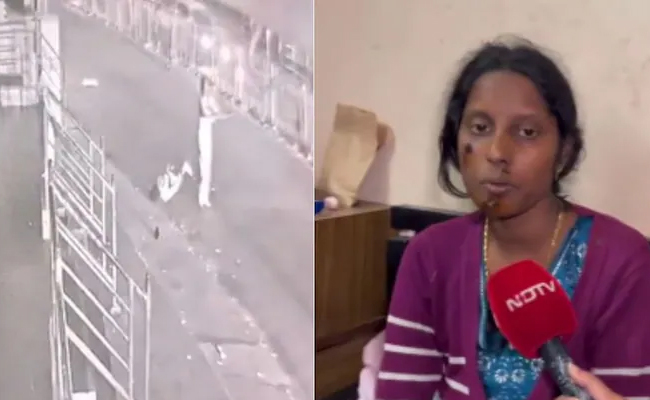Bengaluru, Mar 25: The Karnataka BJP government's decision to remove Muslims from the 2B category of Other Backward Classes, which gave them four per cent reservation, has come under fire from leaders of the Muslim community who say they will challenge the move in court.
The Karnataka Cabinet, which met on Friday, had also decided to split this quantum of four per cent equally between Vokkaligas and Veerashaiva-Lingayats at two per cent each in jobs and admissions in educational institutions.
The move, which comes ahead of the Assembly elections that are due by May, was welcomed by the two politically influential communities.
The government's decision has left Muslims to compete with the general category for the 10 per cent reservation meant for Economically Weaker Sections (EWS), which is decided based on family income.
Muslim leaders called it a "grave injustice meted out to them".
The Karnataka Cabinet also made recommendations to the Union government regarding internal reservation for Scheduled Castes: six per cent for SC (Left), 5.5 per cent SC (Right), 4.5 per cent to "Touchables" and one per cent to others (total 17 per cent).
But Dalit leaders are unimpressed with the internal reservation, and said it meant nothing until the 17 per cent for the SCs passed by the Karnataka Legislature got Constitutional validity.
A Muslim leader alleged that the community's rights had been snatched away.
Some top Muslim religious leaders of Karnataka on Saturday held a meeting where they denounced the move and vowed to fight it out legally. They also called it a political move by the BJP government to win the upcoming Assembly election.
"Today, Muslims are below the SC and ST in terms of education. You can make out from the atrocities being perpetrated against the Muslims," Maulavi Maqsood Imran of Jamia Masjid and a member of the Ulema Council told PTI, adding, "We will not hit the street or create ruckus on the road. We will fight for our rights legally."
He said there was no objection to Vokkaligas and Lingayats getting additional reservation but it should not happen by taking away someone else's rights.
"We want to appeal to the Vokkaliga and Lingayat seers whether they would like to take those rights which were snatched from others and given to them. We want them to build pressure on the government to get their due share of reservation," he said.
According to him, it was possible to enhance the reservation for Vokkaligas and Lingayats without taking it away from Muslims.
In the meeting at the Khadaria Masjid on Millers Road, Muslim religious leaders also consulted lawyers on taking forward the fight legally.
Meanwhile, Dalit Sangharsh Samiti (Ambedkar Vada) leader Mavalli Shankar said the internal reservation for the SCs would not stand court scrutiny.
"Till the time the 17 per cent reservation gets constitutional validity as was done for Economically Weaker Sections, the internal reservation for the SC (Left), SC (Right), SC (Touchables) and other SCs has no meaning," Shankar told PTI.
A senior Dalit officer too expressed his unhappiness over the internal reservation saying it was just an eyewash because there was no constitutional validity to the 17 per cent reservation proposed for the SCs by the State government.
After the Karnataka government decided to increase the reservation for Vokkaligas in 2C category from four per cent to six per cent and Lingayats in 2D category from five per cent to seven per cent, Basava Jaya Mrutyunjaya Swamiji of Panchamasali Peeth ended his two-year old agitation.
He, however, said he had only "halted" the agitation till the elections are over and would renew his demands until they are met completely.
According to the Swamiji, the demand was for 15 per cent reservation for Lingayats.
Sri Nirmalanandanatha Swamiji, a key religious leader of the Vokkaliga community, expressed his happiness over the two per cent increase in reservation for the Vokkaligas.
Let the Truth be known. If you read VB and like VB, please be a VB Supporter and Help us deliver the Truth to one and all.
Mumbai (PTI): Neeraj Ghaywan's much acclaimed "Homebound" is among the 15 films shortlisted in the best international feature category at the Oscars, moving a step close to the final five nominations and maybe a win.
The movie, inspired by a true story that became the basis of a news article during the pandemic, has been creating a global buzz since its debut in the Un Certain Regard category at the Cannes Film Festival this May.
Hollywood legend Martin Scorsese is a fan and has come onboard as an executive producer ahead of the award season.
Produced by Karan Johar and Adar Poonawalla, and starring Ishaan Khatter, Vishal Jethwa and Janhvi Kapoor, "Homebound" is Ghaywan's second movie after "Masaan".
"Homebound" will compete for an Oscar nomination alongside Argentina's “Belén”, Brazil's “The Secret Agent”, French drama "It Was Just an Accident”, Germany's "Sound of Falling” and Iraq's "The President's Cake".
ALSO READ: Actress Shilpa Shetty's restaurant booked for breaching operating hours
The other movies in the shortlist include Japan's “Kokuho”, Jordan's “All That’s Left of You”, Norway's “Sentimental Value”, Palestine's “Palestine 36”, South Korean hit “No Other Choice”, Spain's “Sirat”, "Late Shift" from Switzerland, “Left-Handed Girl”from Taiwan and Tunisian drama “The Voice of Hind Rajab”, the Academy of Motion Picture Arts and Sciences announced in a release on Tuesday.
The award for best foreign film, now re-categorised as best international feature, has so far eluded India.
Only three Indian films have received nominations in the category -- Mehmood Khan’s “Mother India”, Mira Nair’s “Salaam Bombay” and Ashutosh Gowarikar’s “Lagaan”. Deepa Mehta’s “Water”, starring John Abraham and Lisa Ray, also received a nomination but it was submitted from Canada.
Gujarati film "Chhello Show" in 2023 was the last film to get shortlisted.
Costume designer Bhanu Athaiya was the first Indian to get an Oscar, bagging the coveted prize in 1983 for the film "Gandhi". Other than her, A R Rahman, Resul Pukootty and M M Keeravani have also won individual Oscars.
Team "Homebound" celebrated the shortlist news with posts on social media.
"We made the shortlist... Way to go team Homebound'!" Johar shared in Instagram Stories.
In a post, the producer said it was difficult for him to articulate how "proud and elated" he was with the news.
"All of us @dharmamovies are privileged to have this proud and important film in our filmography... thank you @neeraj.ghaywan for making so many dreams of ours come true... from Cannes to being on the Oscar shortlist this has been such an overwhelming journey! Love to the entire cast and crew and teams of this special special film! Upwards and onwards...."
Ghaywan also shared the news on X.
"#Homebound has been shortlisted for Best International Feature Film at the 98th Academy Awards! We are deeply grateful for the extraordinary love and support we've received from around the world," he wrote on X with a special poster of the film.
Jethwa, who plays one of the two friends in the story opposite Ishaan Khatter, said the moment feels "surreal and incredibly humbling".
"To see 'Homebound' being shortlisted and progressing towards the Oscars is something I could have only dreamed of. I am deeply grateful for the love and support the film has received from audiences around the world," he said as he acknowledged Johar, Ghaywan and co-star Khatter and the rest of the team.
Khatter also shared the news on his Instagram stories and wrote, "Oscar ab dur nahi".
ALSO READ: MGNREGA rename: Gandhi made ‘Raghupati Raghav Raja Ram’ national anthem, Kangana sparks row
"Homebound" is inspired by journalist Basharat Peer's The New York Times article “Taking Amrit Home”, also titled "A Friendship, a Pandemic and a Death Beside the Highway".
The film portrays the childhood friendship between a Muslim and Dalit who chase a police job that promises them the dignity they have long been denied due to their surnames.
The Academy on Tuesday also announced shortlists in 11 other categories, including the newly added casting Oscars, animated shorts, cinematography, documentary feature, documentary short, original score and song, sound and visual effects categories.
Nominations for the 98th Academy Awards will be announced on Thursday, January 22, 2026.
Twenty-four categories will be awarded at the 98th Oscars. Each category has five nominees, except for best picture, which has 10.
The 98th Oscars will be held on Sunday, March 15, 2026, at the Dolby Theatre in Los Angeles.





